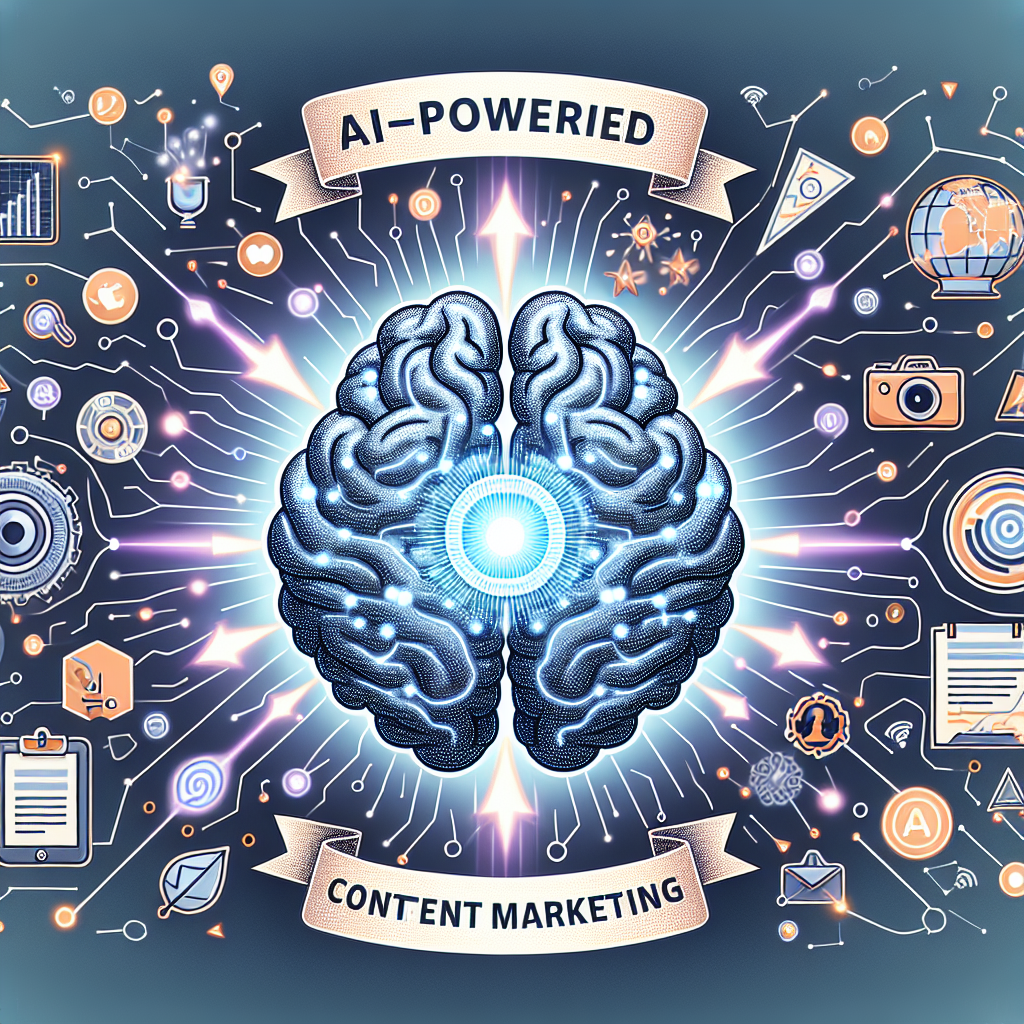Leading in the AI Era: Essential Skills for Modern Executives
The integration of artificial intelligence into business operations has transformed the landscape of leadership. As AI continues to evolve, it is crucial for executives to adapt and acquire the skills necessary to lead effectively. This article delves into the essential skills that modern executives need to thrive in an AI-driven world and explores how leadership in AI can be leveraged to drive organizational success.
Understanding AI Leadership
In today’s rapidly evolving digital landscape, the concept of leadership in AI is becoming increasingly pivotal. As organizations strive to integrate artificial intelligence into their operations, the demand for leaders who can navigate this paradigm shift is at an all-time high. But what exactly does AI leadership entail?
The New Frontier: Balancing Innovation and Human Touch
At the heart of AI leadership is the ability to balance cutting-edge technology with a human-centric approach. According to a study by Harvard Business Review, 68% of leaders recognize that integrating AI strategies with leadership coaching can significantly boost transformation effectiveness. Leaders must adopt a dual-minded strategy—embracing innovation while maintaining empathy and understanding.
- Innovative Leadership in AI: This involves spearheading AI projects with a vision that combines technical prowess with strategic foresight.
- Ethical Leadership in AI: Navigating the moral implications of AI usage requires leaders to set clear ethical guidelines and ensure compliance.
- Diversity in AI Leadership: Encouraging diverse perspectives not only fosters an inclusive culture but also leads to more innovative solutions.
Cultivating Essential Skills for Future-Ready Leaders
The future of leadership in AI isn’t just about knowing how to use tools; it’s about mastering adaptive leadership techniques and change management skills. McKinsey reports that companies prioritizing digital transformation are twice as likely to see revenue growth. Thus, the skills needed include:
- Cultivating Change Management Skills: Successfully overseeing AI projects requires agility and resilience.
- Leveraging Data Analytics: Effective decision-making hinges on understanding data patterns and deriving actionable insights.
- Emotional Intelligence: As machines take on more tasks, emotional intelligence becomes crucial for fostering team collaboration and morale.
Let’s face it, if we can’t teach our machines to laugh at our jokes yet, at least we can lead our teams with compassion!
“Leadership is not about being in charge. It is about taking care of those in your charge.” – Simon Sinek
The integration of artificial intelligence into organizational strategy presents both challenges and opportunities. However, by understanding these core components of AI-driven leadership, executives can steer their teams toward sustainable success and innovation.
AI-Driven Leadership Strategies
In a world where artificial intelligence is no longer a sci-fi fantasy, but an integral component of business operations, the leaders of today need to embrace AI-driven leadership strategies. As executives, the goal is not just to survive but to thrive in this technological ecosystem. Let’s dive into how you can lead with artificial intelligence and make it work for you!
Understanding AI and Its Business Impact
The AI market is projected to skyrocket to .59 trillion by 2030 (Statista). This staggering growth underlines the importance of understanding AI’s role in business. Leaders must be proactive in integrating AI into their organizational strategy, ensuring sustainable competitive advantage.
Key Strategies for AI-Driven Leadership
- Data-Informed Decision-Making: Leverage data analytics for effective decision-making. Equip yourself with the tools necessary to turn data into actionable insights.
- Ethical Considerations: Ensure ethical leadership in AI by establishing guidelines that promote fairness and transparency.
- Diversity and Inclusion: Embrace diversity in AI leadership roles to foster innovative solutions and perspectives.
- Cultivating Change Management Skills: Prepare your team for change by focusing on adaptability and resilience.
Navigating Challenges with Humor
Navigating challenges in AI leadership can sometimes feel like herding cats—chaotic yet rewarding. When things get tough, remember that adaptability is your best friend. And if all else fails, remind your team that even robots need a reboot once in a while!
“Incorporating AI into business isn’t just about automation; it’s about augmentation—amplifying human capability.” – Anonymous Thought Leader
Through strategic leadership and continuous learning, you can transform potential hurdles into stepping stones towards success. For more insights on how leading with artificial intelligence can reshape your executive approach, check out our latest resources at iavva.ai.
Developing Ethical Leadership in AI
In the rapidly evolving landscape of artificial intelligence leadership, developing ethical leadership is not just a nice-to-have—it’s an imperative. As AI systems become increasingly powerful and autonomous, the role of leadership in ensuring ethical usage cannot be overstated. The stakes are high, and the responsibility is enormous. But fear not, because adopting ethical AI practices is easier than trying to get your cat to take a bath.
Why Ethical Leadership Matters
- Transparency and Accountability: Leaders need to foster a culture of transparency where AI operations are clear, understandable, and accountable. According to a study by Deloitte, 95% of business leaders believe that transparency around AI decisions is critical for trust (source: Deloitte).
- Bias Mitigation: As highlighted by research from MIT Media Lab, AI models can replicate biases present in their training data. Leaders must prioritize diversity in teams and data sets to counteract this (source: MIT Media Lab).
- User-Centric Design: Keep your end-users at the heart of every AI initiative. Ethical leaders should ensure that solutions are designed with user privacy and consent as foundational principles.
The Pillars of Ethical Leadership in AI
- Cultivating a Culture of Integrity: Encourage open discussions about ethics and integrity within your organization. Leaders like you should model these values visibly—remember, actions speak louder than words.
- Commitment to Continuous Learning: In the book “Ethical Machines”, author Reid Blackman emphasizes that ethical leaders must stay informed about evolving standards and guidelines (source: Goodreads).
- Stakeholder Engagement: Foster inclusive environments where diverse voices contribute to decision-making processes. Not only does this practice enhance ethical outcomes, but it also sparks innovation (hint: two birds with one stone).
The journey towards becoming an ethical leader in AI might seem daunting, but it’s essential for effective and responsible leadership roles in AI. If you’re interested in transforming your approach to leadership, check out our insights on how executive coaching can elevate performance on our website: Transform Your Leadership: How Executive Coaching Elevates Performance and Innovation.
“Ethics is knowing the difference between what you have a right to do and what is right to do.” — Potter Stewart
Navigating these waters requires thoughtful action; after all, leading with ethics isn’t just about avoiding legal troubles—it’s about building a future we all want to live in.
Diversity and Inclusion in AI Leadership
In the rapidly evolving landscape of AI leadership, diversity and inclusion are not just buzzwords—they’re essential components for fostering innovation and driving business success. As organizations strive to integrate more artificial intelligence into their strategic frameworks, embracing a variety of perspectives becomes crucial. But why is this so important, especially in the realm of AI leadership?
The Power of Diverse Perspectives
- Effective problem-solving: Diverse teams bring different problem-solving approaches to the table, leading to more innovative and effective solutions.
- Increased creativity: A mix of backgrounds and experiences enriches the creative process, leading to groundbreaking ideas and strategies.
- Enhanced decision-making: According to a study by McKinsey & Company, companies with diverse executive teams were 33% more likely to outperform their peers on profitability.
Diversity makes us smarter—literally. The inclusion of varied voices helps in mitigating groupthink and fosters a culture where alternative viewpoints can be explored without prejudice. This is particularly significant when dealing with complex AI systems that impact various facets of society.
Challenges Faced by Women in AI Leadership
The tech industry has long grappled with gender imbalance, and AI is no exception. While women hold pivotal roles in AI development and application, they remain significantly underrepresented in leadership positions. Organizations must actively work towards creating pathways for women in AI leadership through mentorship programs, equitable hiring practices, and supportive workplace cultures.
“Your business is only as innovative as the voices it includes.” – Avva Thach
Implementing policies that foster diversity and inclusion isn’t just about fulfilling quotas; it’s about weaving these principles into the very fabric of organizational culture. Companies like Google and IBM have made strides by investing in diversity-focused initiatives within their AI divisions, demonstrating a commitment that others can emulate.
Strategies for Building Inclusive AI Leadership
- Commitment from Top Management: Leadership buy-in is crucial for fostering an inclusive culture across all levels of an organization.
- Cultural Competency Training: Equip teams with the knowledge to respect cultural differences and embrace diverse viewpoints.
- Diverse Talent Pipeline: Actively recruit from underrepresented groups to build a pipeline that reflects societal diversity.
The importance of diversity can’t be overstated when it comes to leading with artificial intelligence. By including diverse voices at every level, businesses not only enhance their innovation capabilities but also align themselves with ethical practices that resonate with today’s socially conscious consumers.
If you’re interested in exploring how you can transform your leadership approach through inclusive practices, check out Avva Thach’s insights on transformative executive coaching.
Navigating Challenges in AI Leadership Roles
In the pulsating realm of artificial intelligence leadership, executives face unique hurdles that demand both foresight and agility. As AI continues to reshape industries, leaders are tasked with not just steering their organizations through these tumultuous waters, but doing so with a blend of ethical responsibility and innovative vision.
1. Balancing Human and AI-Led Teams
One of the primary challenges is finding the sweet spot between human ingenuity and machine efficiency. The phrase “robots are taking over” might make for a cheeky headline, but in reality, the goal is symbiosis rather than supremacy. Leaders need to cultivate environments where AI complements human efforts, enhancing productivity without diminishing the value of human input.
- Example: A study by McKinsey reveals that businesses integrating AI into their operations see a productivity increase of up to 40% [Source].
- Tip: Regular workshops and training sessions can help bridge the gap between technology and team dynamics. This approach not only boosts morale but also fosters a culture of continuous learning.
2. Ethical Leadership in AI
The implementation of AI brings with it ethical dilemmas that require careful navigation. Decisions around data privacy, algorithmic bias, and transparency must be made with a conscientious approach to avoid pitfalls that could lead to public distrust.
“Good intentions are not enough; we need good algorithms.” — Cathy O’Neil, author of Weapons of Math Destruction
- Consideration: According to Harvard Business Review, 68% of leaders agree that clear ethical guidelines are essential for effective digital transformation efforts [Source].
3. Adaptive Leadership and Artificial Intelligence
The pace at which technology evolves means that today’s solution may very well become tomorrow’s problem. Thus, adaptive leadership is crucial—leaders must remain flexible and open-minded while guiding their organizations through this rapid technological evolution.
- Strategy: Embrace iterative strategies like Lean Six Sigma to continuously refine processes and eliminate inefficiencies.
- Resource: Check out our podcast on transforming leadership roles for more insights into adaptive strategies in an AI-driven world: Listen Now.
The role of an executive in today’s AI landscape extends beyond traditional management skills; it requires an amalgamation of emotional intelligence, strategic foresight, and technical prowess. Transform your leadership skills by embracing these challenges as opportunities for growth.
The Role of Emotional Intelligence with Artificial Intelligence
In the age of Artificial Intelligence, the prowess of Emotional Intelligence (EI) is not to be underestimated. While AI can swiftly process vast amounts of data and predict trends with uncanny accuracy, it lacks the nuanced understanding of human emotions — a domain where EI reigns supreme.
As leaders navigate the intricate landscape of AI-driven leadership, blending emotional intelligence with artificial intelligence becomes imperative. This fusion not only enhances decision-making but also fosters a more harmonious workplace. According to a study by TalentSmart, 90% of top performers have high emotional intelligence, proving that in leadership roles, EQ often trumps IQ.
Why Emotional Intelligence Matters in AI Leadership
- Empathy in Technology Integration: While AI can facilitate operational efficiency, applying empathy when implementing these technologies ensures smoother transitions and greater acceptance among teams. Imagine telling your team that a new AI tool will help streamline tasks without acknowledging their concerns about job security — cue the collective groan!
- Building Stronger Teams: Leaders with high emotional intelligence can perceive and manage their own emotions and those of others. This skill is crucial when orchestrating human-centric leadership in an AI environment. The Harvard Business Review highlights that emotionally intelligent leaders are adept at building trust and collaboration within teams.
- Navigating Ethical Challenges: As AI systems become more complex, ethical considerations arise. Leaders equipped with strong emotional intelligence are better prepared to address these challenges thoughtfully, balancing technological advancements with societal impact.
“Artificial intelligence can augment our abilities,” says Daniel Goleman, psychologist and pioneer in emotional intelligence research, “but it can’t replace what makes us uniquely human.” To learn more about how executive coaching enhances performance and innovation through EI and AI integration, visit our coaching page.
Infusing Emotional Intelligence into AI Strategies
The future of leadership in AI demands a strategic approach where EI enriches machine learning outcomes. Here’s how leaders can integrate these skills effectively:
- Cultivate Self-awareness: Regular reflection sessions help leaders recognize how their biases might affect decisions when working with AI tools.
- Encourage Open Communication: Create safe spaces for teams to voice their thoughts on AI implementations—it’s like therapy for technophobes!
- Pursue Continuous Learning: Engage in workshops or seminars focusing on both EI and emerging AI trends to keep ahead.
The symbiosis between emotional intelligence and artificial intelligence paves the way for adaptive leadership styles that are both humane and efficient. Through this blend, modern executives can better navigate the complexities posed by digital transformation while sustaining a people-first approach.
Adapting and Scaling with Adaptive Leadership Skills
In the fast-paced realm of AI leadership, adaptability isn’t just a buzzword—it’s a survival skill. After all, when was the last time you heard a successful leader say, “I miss the good old days of dial-up internet”? Spoiler alert: never.
Why Adaptability is Key in AI Leadership
- Response to Change: According to McKinsey, adaptability is one of the top skills required for navigating digital transformation, which 93% of companies are currently undertaking (source: McKinsey).
- Continuous Learning: AI is evolving at lightning speed. Staying updated with the latest advancements can transform challenges into opportunities rather than overwhelming hurdles.
- Cultivating Innovation: Embracing change encourages innovation—a necessity when leading teams in AI-driven environments.
The ability to adapt also involves recognizing when your current strategies need tweaking. Leaders who master this skill can effectively integrate AI into organizational strategy, ensuring their teams remain competitive and future-ready.
The Role of Adaptive Leadership in Scaling Business Operations
Adaptive leadership doesn’t just help businesses survive; it helps them thrive—particularly during scaling phases. Consider these key aspects:
- Diverse Team Dynamics: Encouraging diverse perspectives contributes to more robust problem-solving capabilities, as it combines multiple viewpoints (source: Harvard Business Review).
- Data-Driven Decisions: Leaders equipped with adaptive skills can leverage data analytics for effective decision-making with AI tools, turning insights into actionable strategies.
A Practical Example: Women in AI Leadership
Diversity plays a crucial role in adaptive leadership. Women have been at the forefront of transformational leadership with AI. For instance, Fei-Fei Li’s work on ImageNet has significantly influenced machine learning and executive decision-making processes (source: Stanford University).
“We’re used to thinking about technology as something that’s outside us… But technology is human.” – Fei-Fei Li
This perspective underscores the importance of human-centric leadership in AI – recognizing that while machines can analyze data, it’s humans who ultimately make sense of it.
If you’re ready to embrace adaptive leadership skills and scale your business operations efficiently, check out our insights on transforming your leadership approach.
The evolution of artificial intelligence presents both opportunities and challenges for modern executives. By cultivating essential skills such as strategic innovation, ethical considerations, diversity inclusion, emotional intelligence, and adaptability, leaders can not only keep pace with technological advancements but also spearhead successful transformations within their organizations. Embrace the future of leadership in the era of AI and lead your business towards unparalleled growth.










Leave a Reply